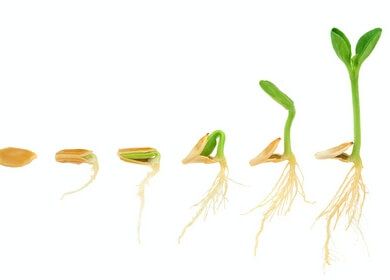
Last Monday, Vernon Hugh Bowman, a 76-year old Indiana farmer, lost a Supreme Court battle with Monsanto, genetically engineered (GE) seed tycoon and the world’s biggest seed company.
Bowman was ordered by the Supreme Court to pay $84,000 to the billion-dollar conglomerate for planting a mix bag of soybean seeds that contained some of Monsanto’s Roundup-resistant seeds, as they were not purchased directly from Monsanto.
The Supreme Court’s unanimous support of Monsanto in this matter spells deep trouble for independent farmers and for sustainable agriculture in the United States.
In 1999, Bowman bought his main soybean crop from Monsanto – a GE variety known as Roundup Ready – and as a part of this purchase signed an agreement not to save any of his harvest to replant the next year. Later that year, unwilling to pay top-dollar for Monsanto’s seeds, he bought a bag of unlabeled seeds from a local grain elevator for his next crop.
According to NPR reporter Dan Charles, “he knew that these beans probably had Monsanto’s Roundup Ready gene in them, because that’s mainly what farmers plant these days. But Bowman didn’t think Monsanto controlled these soybeans anymore, and in any case, he was getting a motley collection of different varieties, hardly a threat to Monsanto’s seed business.”
Roundup Ready seeds are used for approximately 90 percent of all soybean crops in the United States, so it’s not surprising that they were included in the mix bag that Bowman bought.
However, when Monsanto found out, they sued Bowman for $84,000, and the Supreme Court agreed with them.
On the Court’s unanimous decision, Justice Elena Kagan wrote, “the question in this case, is whether a farmer who buys patented seeds may reproduce them through planting and harvesting without the patent holder’s permission. We hold that he may not.”
One truly frightening consequence of this outcome is what may happen when Monsanto’s seeds inevitably end up intermixed in the crops of farmers who had no intention of planting them. Will they be sued and forced to pay Monsanto for the direction the wind blew these seeds?
The clearly profit-driven focus of the Supreme Court in its decision has set a dangerous legal precedent. The simple fact that Monsanto is being allowed to bleed American farmers of tens of thousands of dollars for buying a mix-bag containing a few of their seeds is astounding.
What is even more astounding is that Monsanto claims to be a ‘leader and innovator in sustainable agriculture.’ Their technology is advertised as paramount to adequate food production, global warming response and – most ironically of all – to the reduction of large-scale farming’s negative consequences on the environment.
According to the Union of Concerned Scientists, a broad definition of ‘sustainable agriculture’ requires that an agricultural system is economically viable, ecologically sound and socially beneficial. Monsanto fails to meet these requirements in many ways, including but not limited to the following:
GE crop technologies result in resistant weeds and insects that create further problems for farmers and inhibit sustainability.
Pesticide-resistant strains such as Roundup Ready lead to increased use of herbicides which negatively affect the health of humans, wildlife and the environment, and signify trouble for biodiversity on this planet
When GE crops appear in non-GE crops due to natural spreading, farmers and their customers pay for it; both financially and health-wise
 Monsanto creates roadblocks for independent research on its products, therefore making it difficult for policy makers and farmers to make educated decisions that could lead towards more sustainable farming practices
Monsanto creates roadblocks for independent research on its products, therefore making it difficult for policy makers and farmers to make educated decisions that could lead towards more sustainable farming practices
Monsanto has shown that its focus is on a very limited number of commodity crops, which also inhibits biodiversity
Monsanto spends more than any other agribusiness to influence lawmakers to, as the Union of Concerned Scientists words it, “maintain the industrial agriculture status quo”
In a statement following the Supreme Court’s ruling against Vernon Hugh Bowman, David F. Snively, executive vice president, secretary and general counsel to Monsanto said, “the ruling also provides assurance to all inventors throughout the public and private sectors that they can and should continue to invest in innovation that feeds people, improves lives, creates jobs, and allows America to keep its competitive edge.”
His statement reaffirms that Monsanto’s “competitive edge” will be used against American farmers like Bowman, the livelihoods of their families, and the health of our planet.
-The Alternative Daily
Sources:
http://live.huffingtonpost.com/r/archive/segment/monsanto-wins-genetically-altered-soybeans-case/519151de02a760508000033c
http://www.npr.org/blogs/thetwo-way/2013/05/13/183603368/supreme-court-rules-for-monsanto-in-case-against-farmer
http://www.ucsusa.org/food_and_agriculture/our-failing-food-system/genetic-engineering/eight-ways-monsanto-fails.html
http://abcnews.go.com/blogs/politics/2013/05/indiana-farmer-loses-battle-against-monsanto/

